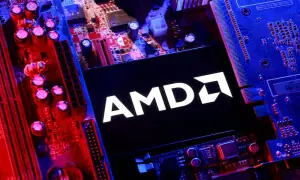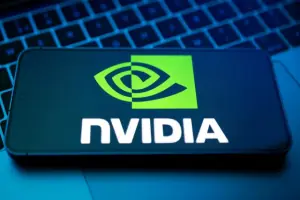US regulator’s new crypto enforcers are coming for DeFi, lawyers say
6 min readWashington: The Securities and Exchange Commission’s decision to beef up its cryptocurrency enforcement staff could signal new worries for digital asset exchanges and others in the industry, as the agency broadens its view of whether some cryptocurrencies are securities.
The agency said last month that it will add 20 enforcement positions dedicated to crypto, boosting the total enforcement staff focused on digital assets to 50. Those tracking the development say the agency will delve deep, looking for violations among a crop of startup ventures.
More enforcement is definitely coming, experts said, and the SEC has plenty of potential targets, including non-fungible tokens, stablecoins and platforms that might come under the agency’s authority if they trade digital tokens that are securities.
Ian McGinley, a partner at Akin Gump Strauss Hauer & Feld LLP, said he expects special scrutiny on one of the newest areas of digital assets: decentralized finance platforms, called DeFi for short. These ventures often use the decentralized structure to establish peer-to-peer markets, in which users engage in financial transactions with other parties directly, without an intermediary such as a stock exchange or bank.
He pointed out that SEC Chairman Gary Gensler has already said the agency is examining them. A small number of DeFis handle much of the total activity in the sector. According to Gensler, the top five DeFi platforms account for about 80 percent of the total trading on all platforms.
“If in fact the decentralized platform is controlled by a small group, I think you are likely to see some actions,” McGinley said.
Given their structure, however, some may have little to worry about from the SEC’s scrutiny.
“If an exchange is purely decentralized, then it is very hard for the SEC to make the case that the exchange is selling securities,” McGinley said in an interview.
He noted that the agency has already ratcheted up action on platforms that allow users to lend and borrow crypto assets, allowing for interest payments. The SEC brought a case against crypto platform BlockFi Lending LLC in February that’s an example of what may come, he said.
The company paid investors a variable rate of interest if they lent their crypto assets on the platform, a practice the SEC said is covered by the securities laws.
BlockFi agreed to pay $100 million to settle charges from the SEC and 32 states for failing to register securities offerings. It also agreed to register and comply with the securities laws in the future.
NFTs
McGinley also said he expects the SEC to pursue cases against non-fungible tokens, which some consider to be the strangest new development in digital assets.
With NFTs, an investor or customer buys a marker on a distributed ledger that is attached to artwork or music. The owners of NFTs don’t always own the original items, just the digital marker. The NFT structure can be used in other ways, however, such as to represent shares of a company or to serve as currency in video games.
“It’s highly likely we will see some SEC enforcement in NFTs, especially since we’ve seen some state regulators recently take action against some NFT projects for selling unregistered securities,” McGinley said.
Regulators in Texas and Alabama in April brought what they said was the first ever enforcement action for the sale of unregistered NFTs to fund virtual casinos. While state actions are often a precursor for federal securities enforcement, the larger SEC force could alter that dynamic.
Some, including inside the agency, are calling for more clarity.
SEC Commissioner Hester Peirce has said that fractional NFTs, which represent shared ownership, might be securities, though she said additional guidance from the agency would be helpful.
Lee Reiners, executive director of the Global Financial Markets Center at Duke University, said the increased staff will have plenty to do.
“Initially, they will be going after the low-hanging fruit of cryptocurrencies that are clearly unregistered securities, along with decentralized finance apps that are not as decentralized as their promoters make them out to be,” he said. “Eventually, I could see this unit addressing cryptocurrency exchanges that are offering securities without being registered with the SEC.”
Enforcement takes time and resources, he said, and during the process new cryptocurrencies can begin, leading to what he called a whack-a-mole exercise. New operations are easy to launch because someone can copy the code of an existing cryptocurrency, Reiners said, and start their own coin. Many crypto processes use open-source code that’s readily available.
Harris Fischman, a partner at Paul, Weiss, Rifkind, Wharton & Garrison LLP, said he expects the SEC will examine whether it is appropriate for DeFi platforms to avoid some of the regulations facing stock exchanges by relying on exemptions provided to brokerage trading operations.
Alternative trading systems, or ATSs, are often operated by brokers to allow trading without the use of a traditional stock exchange.
“Earlier this year the commission proposed amendments to Regulation ATS that if adopted could create reporting requirements for any service that facilitates communications between buyers and sellers of cryptocurrencies that qualify as securities,” Fischman said.
According to Gensler, the agency has received questions about whether crypto platforms can take advantage of some regulatory exemptions enjoyed by ATSs.
Gensler responded in a speech in April that it might not be appropriate to provide crypto trading facilities with the same regulation as ATS equity trading. Most ATS equity transactions are from institutional investors, which are large, sophisticated traders such as pension funds.
Crypto platforms, in contrast, have what Gensler described as “millions and sometimes tens of millions of retail customers directly buying and selling on the platform without going through a broker.”
Fischman also said the SEC will look into the DeFi trading venues.
“One area I expect the expanded Cryto Assets and Cyber Unit to focus its new resources is enforcement activity related to decentralized finance platforms. This has been an area of recent aggressive SEC enforcement activity as well as a repeated subject of public commentary by Chair Gensler.”
Anand Sithian of Crowell & Moring LLP said scrutiny is likely over algorithmic stablecoins, which are digital assets that use a market-based arbitrage system, controlled by computers, to maintain a value of $1 per coin. However, what had been the largest of these assets, the TerraUSD stablecoin, plunged in early May, losing about 98 percent of its value. The stablecoin remains near that low.
Stablecoins, once pitched as a way to buy products, are now mainly used to buy other crypto. The SEC isn’t the only regulatory agency watching them because they have the potential to facilitate illicit transactions and tax avoidance. They are also drawing attention from bank regulators, the Treasury Department and the IRS.
One takeaway of the uncertainties surrounding crypto is the need for officials at trading platforms to protect themselves from liability, according to Sithian. His advice: “Think about directors’ and officers’ liability insurance and evaluate existing coverage, because defending against enforcement investigations can be quite costly.”
For the latest news, follow us on Twitter @Aaj_Urdu. We are also on Facebook, Instagram and YouTube.


























Comments are closed on this story.